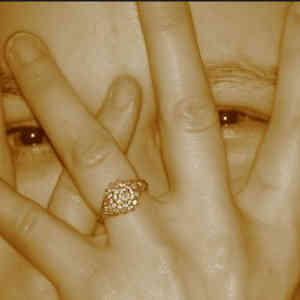It may seem that the world is becoming more secular, and fewer people believe in God. But it isn’t actually true.
Globally, about 90% of people believe in a god or gods. Millions of people (best estimate: about 50m) search for “God” on Google every year. And they ask a lot of questions about God.
The questions people ask
More than half a century ago, CS Lewis jokingly said that God could be defined as a being who was continually having his existence proved and disproved. For some people, God’s existence needs to be proved before they’ll believe.
But these days it seems that most people are happy to believe there is a God. They are more interested in knowing what this God is like. And so they search on Google, and no doubt discuss with friends, all sorts of questions about God.
Some of the most asked questions on Google are:
- Who created God?
- Is God a God of love?
- Why believe in God?
- Will God forgive me?
- Why does God want us to worship him?
- Why does God allow pain and suffering?
- Why doesn’t God show himself more?
- How does God answer prayers?
- Does God change his mind?
- What does God look like?
Some questions seem to be based merely on curiosity, but others show a wish to be loved, forgiven or secure in a threatening world. We can understand why people would ask these questions.
Where should we look for answers?
The interesting thing (for me) is where people expect to find answers they can trust.
Searching for the word “God” on Google brings up a list of 4.9 billion websites. I didn’t go through them all, you’ll be relieved to know, but I checked out the first page (70% – 90% of searches choose a link on the first page on Google).
Most of the links on the first page were secular and neutral (Wikipedia, dictionaries, etc), two were to the conservative christian site Desiring God and two were to the slightly less conservative christian Bible Project site. Clicking on some of the searches Google offers under “People also ask” gave a mix of secular and christians links, plus one Hindu link.
So if I search for “God”, that’s what I get. But since Google seems to curate the result to what it thinks I’m interested in, doubtless other searchers will get a different mix.
So many different answers
The type of answer you get depends on who you ask.
- Many people today would identify as “spiritual but not religious”. They likely have a very general belief in God as a benign being who gives life and looks after us, but makes few demands on us. Mostly their answers to God questions would be very positive.
- Christians, Muslims, Jews and Baha’is believe many different things about religious practices and have some differences about ethical living. But I think they’d mostly give similar answers to the above questions. For example (to just pick a few questions):
- No-one created God, he’s always been there.
- God doesn’t have a body so we can’t describe his appearance.
- He answers prayers consistent with his own character and purposes.
- He is loving and merciful, but also just.
- The answers given by eastern religions (Hinduism, Buddhism, Jainism, Sikhism, etc) would be a little different, because many of these religions believe in some form of karma and reincarnation, and some are far less specific about God. But speaking as an outsider, I’m thinking they may not be all that different to the answers I’ve just given.
- And of course atheists would tell you not to waste your time asking questions about a non-existent being.
How to choose?
So which answers should searchers accept? I suspect many read different answers and accept the one that appeals to them most – a form of confirmation bias.
But for anyone wanting to choose the most reasonable answer, surely the starting point is the question: Why believe in God? The reasons we each have to believe in God, or not, will likely determine the type of God we believe in.
How can we know religious truth?
There are many different ways people think they know religious (or anti-religious) truths.
Wishful thinking?
Humans have the capacity to believe what they want to be true, and to see all the evidence in that light. This may particularly be true if they belong to an identifiable group that provides support.
It seems that this explanation can apply to both believers and non-believers, and while it may explain some belief, it isn’t sufficient explanation. And obviously it isn’t a reason any of us would want to trust.
Philosophy?
Over the years, many philosophical arguments for and against God’s existence have been proposed, argued over and refined. It is generally considered that the end result is a draw – i.e. no argument for or against God can be considered proven. Philosophically, the existence of God is still an open question. And the nature of God remains uncertain.
It is interesting, though, that both atheists and theists are generally strongly convinced by the arguments supporting their own view and unimpressed by the arguments of the other “side”. Perhaps wish fulfilment has a role after all??
Science?
Science has had a complex role in arguments about belief or disbelief in God.
- Science has made some religious beliefs (e.g. 6-day creation) less tenable. For some people, this makes it more difficult to believe, but others simply adjust their belief and continue.
- Some people feel science makes miracles like healing and the resurrection of Jesus less believable. But people back then knew dead men don’t normally rise just as well as we do now, so that hasn’t changed. The issue isn’t a scientific one, but a philosophical one – if there’s a God, miracles are possible; if not then they are impossible.
- Several philosophical arguments for the existence of God depend on science. The design argument based on cosmological discoveries about the “fine-tuning” of the universal laws is considered by many to be the strongest theistic argument. But also scientific facts about consciousness, free will and rationality are used to point to the impossibility of natural laws explaining our common human experience.
So while science is often used to argue against God’s existence, it is in fact also a strong supporter of belief for some people. And for these, science also points to the character of God – a powerful creator who nevertheless takes an interest in humans, and our consciousness, freewill, rationality, and sense of ethics, beauty and love are seen as reflections of God’s character.
Experiencing God
It seems to me that most believers base their belief on their personal experience. This can take several forms:
- Perhaps they have grown up with belief and have found that their belief matches the reality of their life.
- For others, God intervened in their lives in a clear way to give them hope, direction or healing that totally changed their lives.
- A clear answer to an important prayer may be a strong foundation of belief for others.
- For some, God’s intervention was especially dramatic – a vision, a quite miraculous healing, or some other deep experience that was unmistakable.
- And then there are some people who were unbelievers unconnected to God, when God revealed himself to them in some clear and convincing way, and totally turned their lives around.
These experiences may not convince others, but they are difficult to gainsay, and provide a strong reason for the individuals to believe in God and to know his character.
Revelation
We can know about people from observing them, but we only really know someone when they communicate to us. It is the same with God. All of the above can show us God, but we can only really know his character if he reveals himself to us. That can happen personally through people’s experience of God (as above), but it can be seen most if God reveals himself in some objective way.
For most religions, this occurs through a guru, prophet or teacher, often via a sacred scripture. Which raises the question – which one?
As a christian, I believe Jesus was that prophet and teacher. But also that he was more, the divine becoming human – the “son of God”. There are good reasons to believe this is true. And if it is indeed true, it gives us the strongest basis for believing in God and knowing his character.
Putting it all together
For me, and for many other believers, faith in God is based on several of these reasons – revelation, science, philosophy and experience. Each one may not be fully convincing on its own, but together they make a strong case. And they give some clear answers to many of the questions we may have about God.
Quick answers to much-asked questions
So I have identified some of the most asked questions about God, Jesus and religion, and I’m starting to work my way through short answers from a christian perspective.
Check them out at Q & A.
Photos: MorgueFile – Mosque, monks, white church, idol, priest, Buddha, Hindu goddess, menorah.





I’ve become convinced that human beings, the way we have evolved both neurologically and socially, has resulted in humanity being naturally inclined to believing in divinity. We may express this differently in terms of culture and doctrine, but religious believe is universal in human civilizations. I don’t view that as anywhere near conclusive by its self, but I do find it compelling, as I can’t think of any good reason why we would evolve that in a purely materialist, purposeless universe. I think the idea that religion and religious institutions going “extinct” is more or less extremely improbable. You might as well argue that humanity will one day purge all feelings of love or wonder. Like those concepts, while some people may feel it more then others, religiousness is ,in my opinion, a fact of the human experience.
Also, as I point out to the more hardcore Atheists (like the Sam Harris/Dawkins crowd, who seem to me to have long run out of steam in terms of arguments and followers) there is an objective difference between secularism and atheism. Just because one is not part of an organisation religion, doesn’t mean they hold no beliefs in divinity such as god/high power. I think religion is simply evolving as it has always done. As humanity changes, so to does religious expression. Far from the stereotyped image of religion being this backward relic that never changes, my opinion is that the ability to change and self-reflect is one of the factors that has allowed religious institutions to survive thousand of years as while entire empires/world-views/civilizations/cultures have risen and fallen.
Overall, from the evidence I have seen, I would say that while still an uncertain agnostic, I am closer to thinking there is some kind of conscientious power deserving of the title of God then not. As to what God is like….I am still pondering and reading.
Enjoyed reading this Eric. Hope your well.
Pray for Ukraine.
Hi Eric.
I know I’ve already commented on this post but I have a question if I may. I’m interested in learning more about what exactly is considered canon in the Bible, and what is in dispute regarding its canon. Additionally, I am curious to look into the debate regarding accurate translation of the canon text (for example the debate regarding either or not it actually does translate to sentences commonly believed to say such things as “suffer not the witch to live”. Lastly, I’m curious to ask which translation of the Bible you find more accurate to its original language?
Many thanks
Aaron
Hi Aaron, firstly apologies for not replying to your first comment. I somehow missed it, don’t know how. I’ll start (briefly) with that.
I think you are right about two matters which escape many people ….
(1) Religious belief is indeed nearly universal, and many psychologists (e.g. Justin Barrett and Andrew Newberg, both of whom I have written about) think it is ingrained in our brain hardware. Atheists have suggested that religion was dying, but I think their analysis missed a lot. Conventional religion has declined in Europe, but it has been replaced in part by superstition, various forms of spirituality, and less conventional religions. Elsewhere, religion is thriving. It can be suppressed, as in Communist Russia and China, but it still continues in private and rejuvenates when the suppression ends.
(2) I think your comment about religion’s “ability to change and self-reflect” is very perceptive. Many religious believers, not just in Christianity, but I think other religions too, see their faith as very fixed and definite. I think this helps some people to continue in belief. Atheists often take this view too, and use it to argue that inconsistencies and changes show the falsity of religion.
(I remember having a discussion on a forum about “hell”, explaining to an atheist that I didn’t believe the Bible taught what some conservative christians say on that topic. He argued that I was wrong, etc, so vehemently that I had to say to him “You are arguing that I should hold a view that neither of us believes is true, so you can then disagree with me and criticise me!”)
Christianity in particular has changed and morphed and developed in many ways over time. If it was true that the Bible is a fixed fully authoritative and complete document, then lots of things couldn’t change. But if (as I believe) there is a living God who is active in the world (mostly in subtle ways), then you’d expect the faith to develop and change as culture changes.
And yes, I am praying for Ukraine. Sometimes I wonder why God doesn’t act more decisively, and then I see the UKrainian army fighting the much larger Russian army to a standstll, and I wonder maybe he is. But I pray for a peaceful solution that doesn’t involve so many young Russian soldiers having to die in an unjust cause.
The canon of the Bible is a complex matter, and a little different different for the two Testaments.
The OT was told, repeated, written, collected, edited, etc, over maybe a millennium, coming together in its present form only a century or two BCE, and only really ratified by the Jews in its present form sometime after the temple was destroyed in 70 CE.
The christians accepted the Jewish canon as their OT. The christian NT was written over less than a century, and came together in its present form a few centuries later, but was only formally ratified many centuries later.
These processes suggest to me that formalising the canon wasn’t the most important thing in both cases. More important was learning and living according to the teachings handed down. Nevertheless, formal ratification was eventually deemed important in both cases.
The Jewish Tanakh (Law, Prophets and Writings) is more or less the same as the christian Old Testament, though the order is different. Some books written after the last of the Tanakh (basically 2 centuries BCE) were included in the Greek version of the Jewish scriptures but not generally considered inspired. Some of these works, often called the apocrypha, are included in Orthodox and Catholic scriptures, but not in Protestant.
There is no real disagreement now about the NT canon. Of the 27 books, most (the gospels, Acts, Paul’s letters) were always accepted, but a number (generally those near the end and a few that missed out) were much argued over before final acceptance or rejection.
I think there are a few doubtful translations but nothing very substantial. Some individual words or phrases are uncertain, but the main differences in translation are the result of trying to stay true to the original vs trying to be most understandable today – a universal problem in translation.
Some scholars say “witches” is a mistranslation in that passage, principally because we don’t know if “witch” back then had the same meaning as today. I don’t know if we can ever know that for sure. I prefer to deal with that verse (and many others) by saying God’s revelation is ongoing, and this was an early stage, and we have newer revelation now – I don’t think Jesus would have killed a witch any more than he would stone an adulterer.
As I said, translation is a balance between literal accuracy and making sense to modern readers. I lean towards making sense, and so I use the NIV, which is a balance between the two, while I really like the Good News Bible or the Message which are more vernacular.
Sorry about long answer, but I tried to be short! 🙂
Hi Eric.
I responded a few days ago but I think I forgot to hit send. Thank you for your input, your breakdown of biblical canon was very helpful, as was your notes on translation. I’ll bare those in mind as I continue my research.
In regards to Ukraine, it’s actually reminded me of what I think is a biblical story I learned in primary school. The story of David and Goliath. It’s good to see so many across our world, even some of the young in Russia, come out in support of the Ukrainian Davids. Always did like that story.
Regards
Aaron
Thanks, I’m glad it was useful. Yes I think the bravery and effectiveness of the Ukraine army and President and civilians has surprised and encouraged everyone, while the relative ineffectiveness and the brutality of the Russian army and President has been an aweful eye-opener.